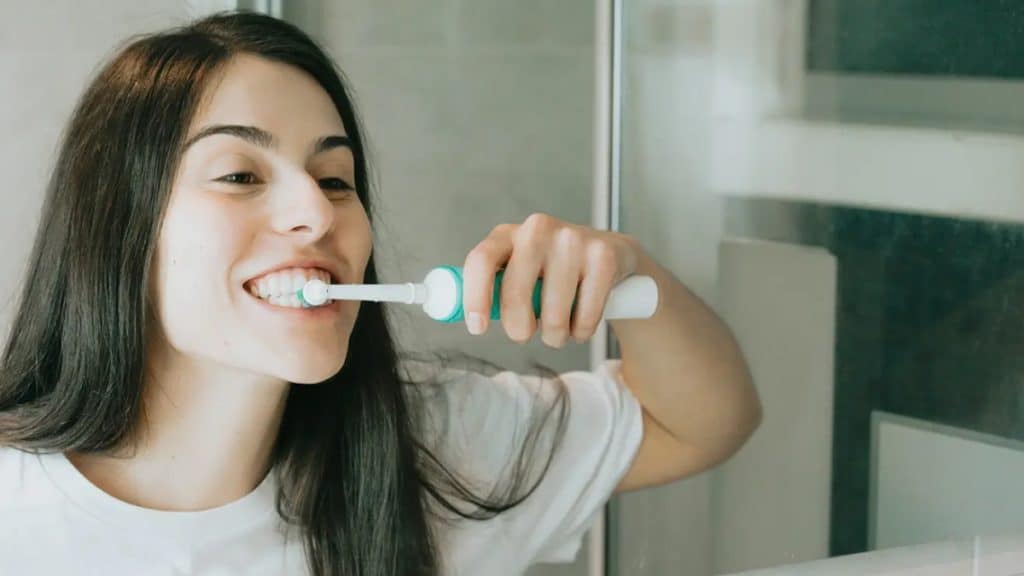Selecting the right toothbrush might seem easy, but with so many options to choose from, it can quickly become overwhelming. From manual to electric and soft to hard bristles, there’s much to consider when choosing the ideal toothbrush to maintain oral health. That’s why choosing a toothbrush that suits your specific needs is essential, ensuring both effective cleaning and protection for your teeth and gums.
In this article, we’ll walk you through everything you need to know to choose the perfect toothbrush for your oral care routine.
Manual vs Electric Toothbrushes: Which Is Better?
One of the most debated questions in oral care is whether a manual or electric toothbrush is more effective. While some people swear by their electric toothbrushes, others feel manual brushes do the job just fine. So, which one is better?
Both manual and electric toothbrushes can clean your teeth effectively, but the key is in your brushing technique. If you use a manual toothbrush, brush gently, circularly, for at least two minutes twice daily. On the other hand, electric toothbrushes can be more convenient and offer a more consistent clean. Ultimately, it’s about personal preference and the way you’re brushing your teeth.
Do You Really Need a Soft-Bristled Toothbrush?
There’s a common belief that coarser bristles will clean your teeth better, removing more plaque and stains. While hard-bristled toothbrushes may feel like they’re doing a better job, they could be doing more harm than good.
The truth is that dentists typically recommend brushing your teeth with a soft-bristled toothbrush because it is gentle on your teeth and gums. Hard bristles can wear down your enamel over time and irritate your gums, leading to sensitivity and gum recession. On the other hand, a soft-bristled toothbrush can still effectively remove plaque and food debris without the risk of damaging your teeth.
Does the Toothbrush Head Size Matter?
When it comes to toothbrushes, size does matter—at least when talking about the toothbrush head. Many people think that a larger toothbrush head will cover more surface area, making brushing faster and more efficient. However, this isn’t always the case.
A smaller toothbrush head can often be more effective than a larger one. It allows you to reach all the areas of your mouth more easily, especially the back teeth and other hard-to-reach spots. A brush head that’s too large may make it difficult to clean between teeth or reach the very back of your mouth. Therefore, choosing a toothbrush that can comfortably maneuver around your teeth and gums is important for the best results.
Does the Handle Type Matter?
Toothbrush handles come in many shapes, sizes, and materials. Some people assume that a fancy handle doesn’t make much difference in how well their toothbrush works, but this isn’t entirely true. While the handle itself doesn’t directly affect how clean your teeth will get, a comfortable handle can improve your brushing experience.
If the handle is too thick, too thin, or made from a slippery material, it might make it harder to grip properly, which could affect your brushing technique. Use a toothbrush with a comfortable handle that feels stable in your hand so you can maintain the right brushing motions for the full two minutes.
How Often Should You Replace Your Toothbrush?
Some people believe that a toothbrush can last for months, or even longer, as long as the bristles still look somewhat intact. However, using an old toothbrush could be harming your oral hygiene more than you think.
You should replace your toothbrush at least every four months or sooner if the bristles become frayed or worn. Over time, the bristles lose effectiveness, meaning they won’t clean your teeth as thoroughly. Plus, an old toothbrush can harbor bacteria, which isn’t something you want lingering in your mouth. So, be mindful of the state of your toothbrush, and if in doubt, swap it out.
Start Using the Right Toothbrush for Your Oral Health
Choosing the perfect toothbrush for your daily dental care may seem trivial, but it can make a significant difference in your oral health. By opting for a soft-bristled toothbrush, replacing it regularly, and considering the size of the toothbrush head, you can ensure your teeth and gums are getting the care they deserve.
Looking for high-quality toothbrushes that prioritize your oral health? Visit Pearlie White for a selection of toothbrushes that meet all your dental care needs.
